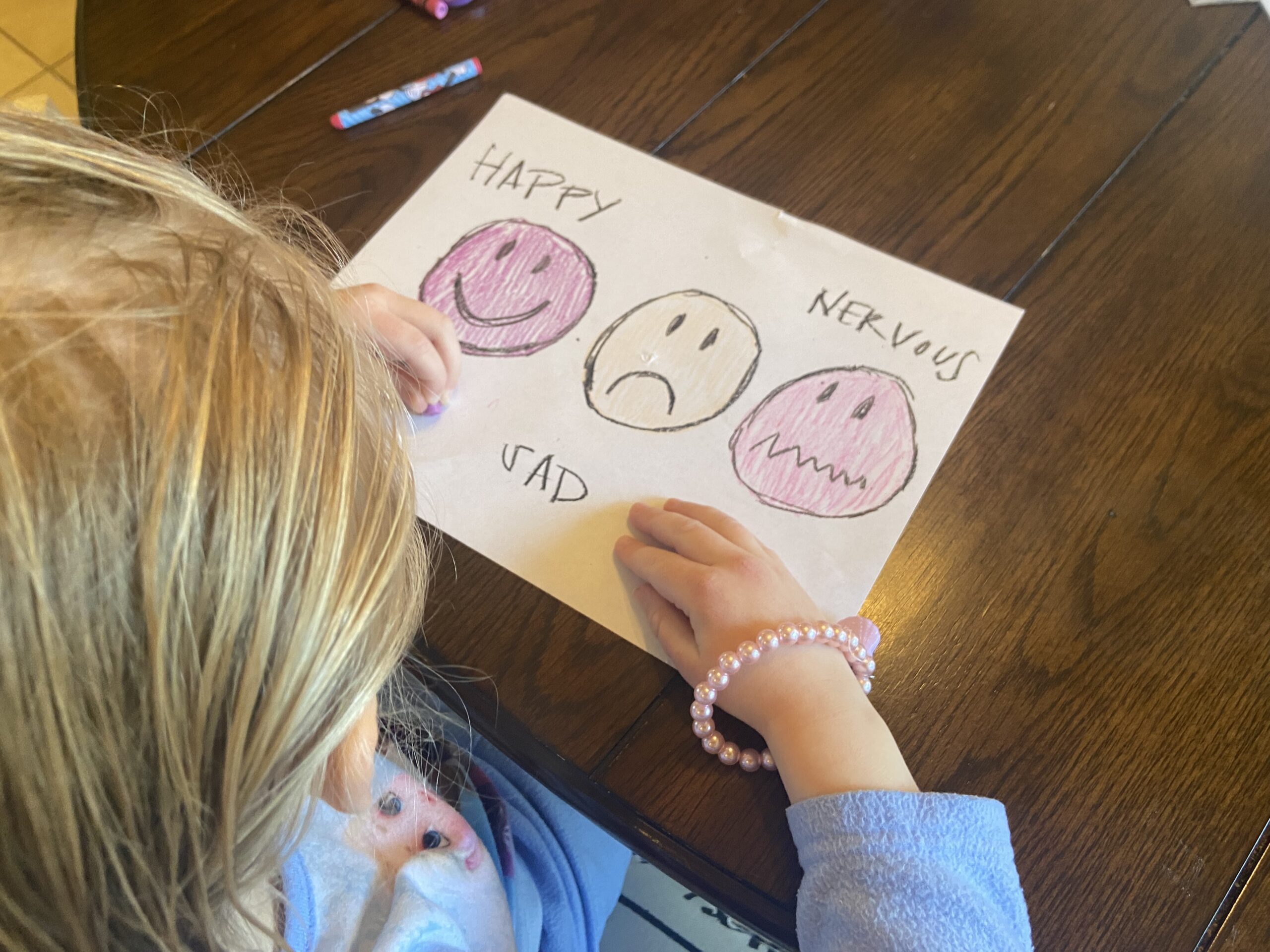Emotional intelligence is a buzzword these days for a reason.

“Emotional intelligence” is a term coined by Peter Salovey and John Mayer (uber fancy academic psychologists) to attempt to describe what researchers have been trying to put into words for many, many years. It’s that X-Factor, the ability to navigate social situations and relationships with expertise. Examples include being able to “read the room” or diplomatically react to a triggering situation. Specifically, the Ability Model breaks emotional intelligence down into four categories:
- Emotional Perception (identifying emotions)
- Emotional Integration (thinking in terms of emotion)
- Emotional Understanding (accurately interpreting emotions)
- Emotional Management (managing your own emotions)
If you are reading this post, you are probably the kind of mom who tries pretty hard at your mom-ness. Part of being that kind of mom means asking the question, “How can I raise great kids?” here and there. Trying to instill emotional intelligence into your children is a great investment of time and effort. Emotionally intelligent people tend to have more meaningful relationships, both personally and professionally. Research shows that emotional intelligence is primarily developed in childhood, thanks to emotionally intelligent role models. As with most traits, kids are picking up more on what is shown to them versus what is told to them. For example, “clean your room” is usually better received if your bedroom is tidy. Kids are not buying “don’t yell” if their parents are screaming that command.


Perfection is impossible. Momming is too much of a 24/7 gig for that. But it is possible to tap into that emotion with the intention of fully comprehending and working with emotions to your benefit. After all, we all have emotions, whether we cop to them or not. And the good news is emotional intelligence is a fluid trait, meaning that we can always improve our emotional intelligence skills along the way.
So, what are some specific ways to increase emotional intelligence and teach the kiddos along the way?
- Emotional Perception: When watching Encanto for the hundredth time, ask your kids, “How is Mirabel feeling at the gift reveal party?” or “Does Bruno seem happy or sad when he sees Mirabel?”
- Emotional Integration: When reading a colorful book, asking “Is red an angry or happy color?” or “Does that blue look sad or tired”? (It is less about teaching your kids to look for the “right answer” but encouraging them to think of colors or other tiny details that can give clues to the emotion in the story).
- Emotional Understanding: When your child tells you about school that day, commenting, “When you talk about your friend Caroline, you look sad. Are you upset about what she said to you?” (Asking for clarification to see if you guessed the right emotion can increase your emotional understanding and model for them that picking up on the right emotion matters.)
- Emotional Management: When you are having a bad mom day (kids are overtired and fighting/ you had to skip lunch/ the college group text just got annoying), try to stop. Breathe, check-in with how you are feeling, and practice some self-care in order to self-soothe on purpose- and share with the kids! “Mommy is a little stressed out right now, so I think it’s time to turn on some Ray LaMontagne Pandora.”
Again, intention and effort go a long way. Modeling (more showing, less telling) emotional intelligence is where it’s at. Emotionally intelligent parents raise emotionally intelligent children. We can do this!
















